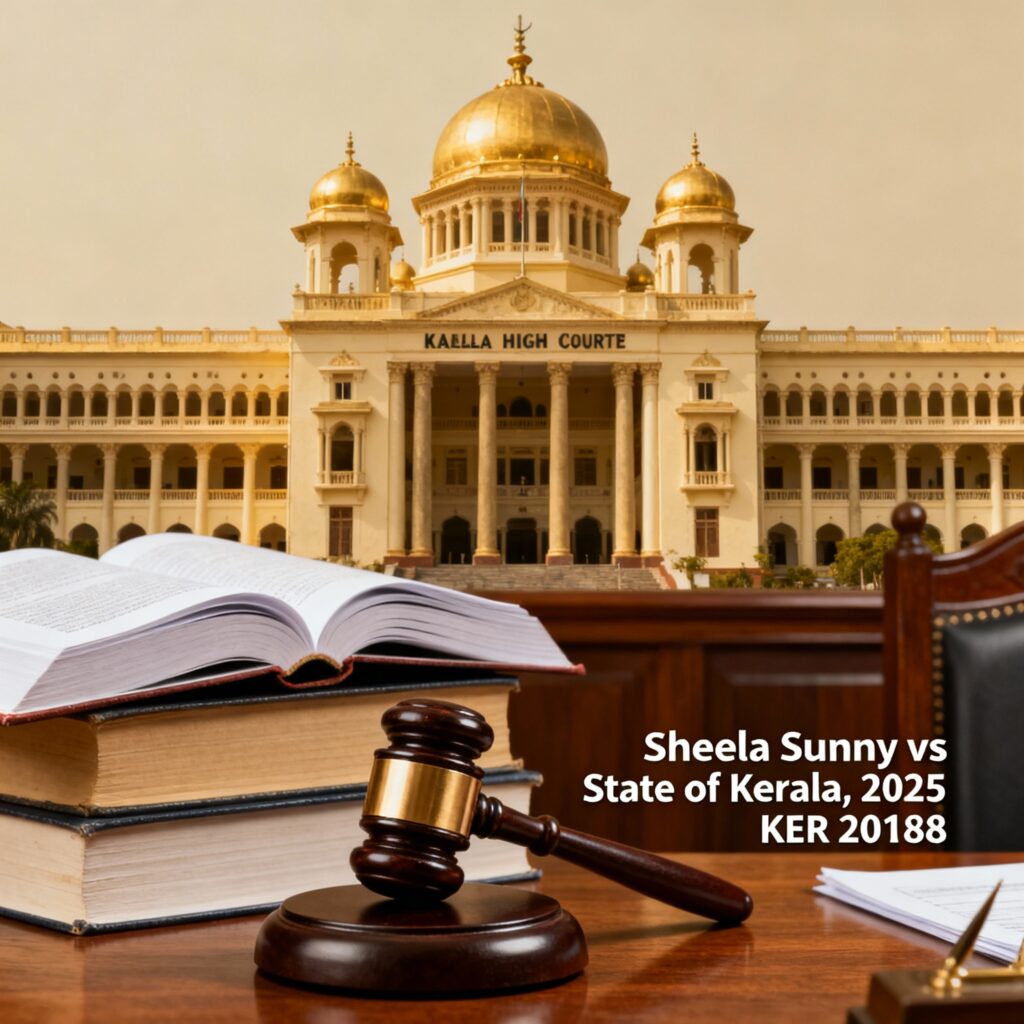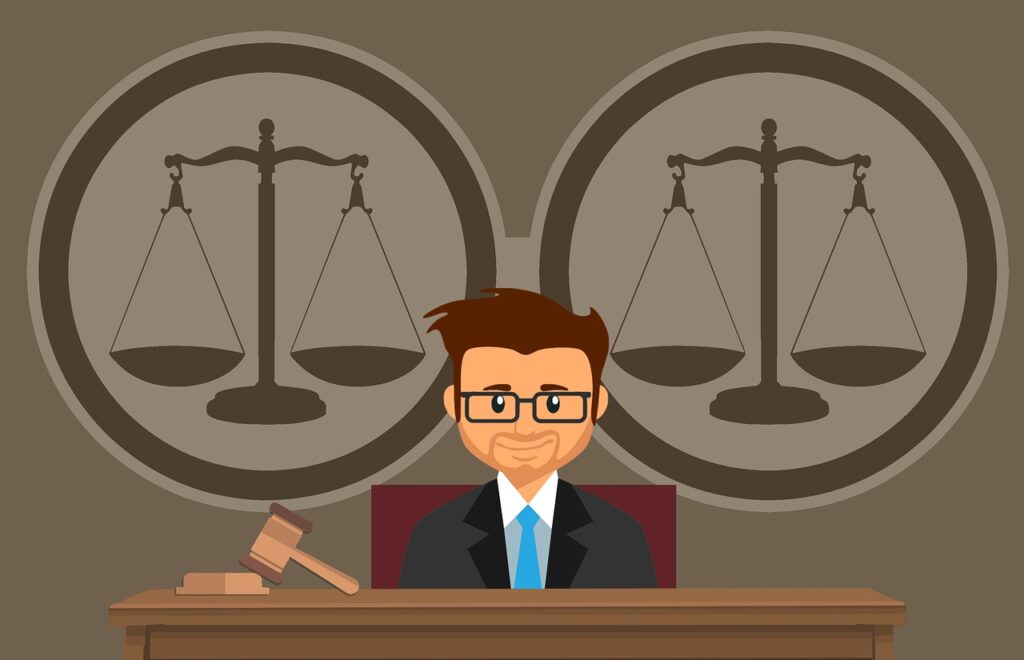Published On: November 13th 2025
Authored By: Elakkiya G
Hindustan Institute of Technology and Science
Court: Supreme Court of India
Bench: A.N. Ray, C.J., H.R. Khanna, J., K.K. Mathew, J., M.H. Beg, J., Y.V. Chandrachud, J.
Date of Judgment: 7 November 1975
Relevant Statutes / Key Provisions: Article 329(b), Article 368, Article 14, Article 19, Article 21, Basic Structure Doctrine of Indian Constitution. Section 123(7), Section 100(1)(d) Representation of the People Act, 1951 (RPA). Thirty-ninth Constitutional Amendment Act, 1975.
Facts of the Case
- In the 1971 general elections to the Lok Sabha, Indira Gandhi (then Prime Minister) contested from Rae Bareli constituency against socialist leader Raj Narain.
- Raj Narain, known for his populist approach, lost the election but challenged Indira Gandhi’s victory by filing an election petition under the Representation of the People Act, 1951.
- Raj Narain alleged that Indira Gandhi had indulged in corrupt practices under Section 123(7) of the RPA.
- He argued that she used government machinery, including the services of government officers, for her election campaign.
Specific charges included:
- Use of state police and government vehicles.
- Yashpal Kapoor, a government servant at the time, working in her election campaign.
- Exceeding prescribed election expenses.
- Justice Jag Mohanlal Sinha of the Allahabad High Court found Indira Gandhi guilty of electoral malpractices.
- Her election was declared void under Section 100(1)(d) of the RPA.
- She was disqualified from contesting elections for six years.
- This judgment shook Indian politics. Indira Gandhi’s position as Prime Minister came under threat.
- Instead of resigning, she appealed to the Supreme Court.
- In the interim, Justice V.R. Krishna Iyer (on vacation bench) granted a conditional stay: Indira Gandhi could continue as Prime Minister but could not participate in parliamentary proceedings until the case was decided.
- On 25 June 1975, citing threats to national security and internal disturbance, Indira Gandhi advised the President to declare an Emergency under Article 352.
- During this Emergency, civil liberties were curtailed, opposition leaders arrested, and press censored.
- To nullify the Allahabad High Court judgment, the government introduced the 39th Amendment, placing disputes relating to the election of the Prime Minister, President, Vice-President, and Speaker beyond the jurisdiction of courts.
- Raj Narain challenged the constitutional validity of Article 329A (4) (inserted by 39th Amendment), arguing that it violated the basic structure of the Constitution by taking away judicial review.
- Thus, the matter reached the Constitution Bench of the Supreme Court.
Issues Involved
- Whether the 39th Constitutional Amendment, 1975 (inserting Article 329A) was valid or unconstitutional?
- Whether exclusion of judicial review in matters relating to the election of the Prime Minister and Speaker violated the basic structure doctrine?
- Whether the decision of the Allahabad High Court declaring Indira Gandhi’s election void was correct in law?
- Whether Parliament had unlimited power under Article 368 to amend the Constitution, including provisions relating to free and fair elections?
- Whether free and fair elections form part of the basic structure of the Constitution?
Arguments
Petitioner (Raj Narain’s side):
- 39th Amendment is Arbitrary and Ultra Vires
- Article 329A (4), inserted by the 39th Amendment, was specifically tailored to protect Indira Gandhi from the adverse judgment of the Allahabad High Court.
- A constitutional amendment cannot be passed with the intention of benefitting one individual or to override a judicial pronouncement.
- This violates the principle of equality before law (Article 14).
- Violation of Basic Structure – Judicial Review
- Judicial review is an essential feature of the Constitution, recognized in Kesavananda Bharati v. State of Kerala (1973).
- By removing the jurisdiction of the courts in adjudicating the election of the Prime Minister, Article 329A (4) destroyed judicial review.
- This undermined the supremacy of the Constitution and tilted the balance in favour of parliamentary supremacy, contrary to the scheme of the Constitution.
- Democracy and Free Elections Form Part of the Basic Structure
- Democracy is part of the basic structure, as held in Kesavananda Bharati.
- Free and fair elections are the lifeblood of democracy. If the election of the Prime Minister could not be challenged in court, it would destroy the democratic character of the polity.
- A Prime Minister whose election is invalid cannot continue to hold office under constitutional morality.
- Rule of Law and Equality before Law
- Placing the Prime Minister’s election beyond judicial scrutiny violated the principle of rule of law—another facet of the basic structure.
- Rule of law requires that no person, however high, is above the law.
- Special treatment of the Prime Minister erodes equality before law under Article 14.
- Separation of Powers
- Article 329A (4) transferred the adjudicatory power from the judiciary to Parliament, thereby violating the doctrine of separation of powers.
- Election disputes are judicial in nature, not legislative. Parliament is an interested party and cannot be an impartial arbiter.
- Corrupt Practices Alleged under RPA
- Raj Narain argued that Indira Gandhi committed electoral malpractices as defined under Section 123(7) of the RPA:
- Use of government machinery: Official vehicles and public servants were deployed for her election.
- Yashpal Kapoor’s services: He was still a government servant when he started assisting Indira Gandhi’s campaign, amounting to misuse of state resources.
- Public funds misuse: Loudspeakers, police, and government resources were allegedly diverted for her campaign.
- Hence, her election should be declared void under Section 100(1)(d).
- Raj Narain argued that Indira Gandhi committed electoral malpractices as defined under Section 123(7) of the RPA:
Respondent (Indira Gandhi’s side / Union of India):
- Parliament’s Power to Amend is Wide
- Article 368 gives Parliament the power to amend “any provision” of the Constitution.
- The only limitation recognized in Kesavananda Bharati was that amendments should not alter the basic structure.
- According to the government, the 39th Amendment was within Parliament’s competence and did not destroy democracy but only created a special mechanism for high constitutional offices.
- Political Question Doctrine
- The election of the Prime Minister is a highly political matter and should not be subjected to judicial interference.
- Courts, being unelected bodies, should not decide issues that are essentially political in nature.
- Parliament, as the voice of the people, is best placed to determine disputes concerning the highest constitutional offices.
- Special Position of Prime Minister
- The Prime Minister holds a unique constitutional status as the head of the government, directly accountable to Parliament.
- Disrupting the office of the Prime Minister through judicial intervention could cause instability in governance.
- Hence, a special forum (created by Parliament) to adjudicate the Prime Minister’s election was justified.
- No Violation of Rule of Law
- The 39th Amendment did not make the Prime Minister above the law but only shifted the forum for deciding disputes.
- Parliament was not exempting the Prime Minister from scrutiny; it was only reserving the power to itself.
- On Alleged Electoral Malpractices
- Yashpal Kapoor had resigned before he began working for Indira Gandhi’s campaign, and there was no evidence of misuse of his official position.
- Use of vehicles, security personnel, and other facilities was part of her entitlement as Prime Minister and not a corrupt practice.
- Election expenses were within permissible limits.
- Therefore, the High Court wrongly concluded that corrupt practices were proved.
- Constitutional Morality Argument
- The government argued that Indira Gandhi’s leadership reflected the will of the people expressed through the ballot box in 1971.
- Invalidating her election on technical grounds would be against the spirit of representative democracy.
Judgment
- On the Validity of the 39th Amendment:
- The Supreme Court struck down clause (4) of Article 329A inserted by the 39th Amendment.
- Reason: It damaged the basic structure of the Constitution by excluding judicial review and violating principles of democracy, rule of law, and equality.
- Parliament cannot, in the guise of amendment, enact provisions aimed at benefitting a single individual (Indira Gandhi).
- On the Allahabad High Court Judgment:
- The Supreme Court upheld the finding that Yashpal Kapoor’s involvement before his resignation from government service amounted to a corrupt practice.
- However, the Court overturned the disqualification, holding that other allegations (use of police, vehicles, etc.) were not substantiated.
- Thus, Indira Gandhi’s election was restored.
Ratio Decidendi
- Basic Structure Doctrine Reaffirmed:
- Parliament’s power to amend the Constitution under Article 368 is wide but not unlimited.
- Amendments that damage the basic structure—including democracy, rule of law, separation of powers, and free and fair elections—are unconstitutional.
- Judicial Review is Integral to the Constitution:
- Exclusion of judicial review in electoral disputes violates the basic structure.
- Free and Fair Elections as Part of Basic Structure:
- Democracy is meaningless without free and fair elections; hence, this principle is judicially protected.
Obiter Dicta
- Constitutional Supremacy over Parliamentary Supremacy:
- The Court emphasized that India follows constitutional supremacy, not parliamentary supremacy.
- Parliament is limited by the Constitution and cannot destroy its core values.
- Doctrine of Separation of Powers:
- By attempting to transfer adjudication of the Prime Minister’s election to Parliament itself, the amendment violated the separation of powers.
- Emergency Context:
- Though not directly adjudicated, the judges hinted that constitutional amendments during an Emergency must be closely scrutinized, as they may be politically motivated.
Final Decision
- Clause (4) of Article 329A (39th Amendment) was declared unconstitutional.
- Indira Gandhi’s election was upheld (her disqualification was set aside).
- The Supreme Court struck a balance:
- It protected the basic structure and judicial review from arbitrary parliamentary encroachment.
- Yet, it saved Indira Gandhi’s political career by reversing the High Court’s disqualification.
Significance of the Judgment
- Landmark in Basic Structure Doctrine:
- Reinforced Kesavananda Bharati by applying basic structure to strike down a constitutional amendment for the second time.
- Strengthened Democracy:
- Affirmed that free and fair elections are an essential feature of democracy and cannot be tampered with.
- Judicial Review as a Cornerstone:
- Established judicial review as part of the basic structure, ensuring that no authority, not even Parliament, is above constitutional scrutiny.
- Political Consequences:
- Though Indira Gandhi survived legally, the case contributed to widespread resentment against her rule, culminating in the 1977 general elections where she lost power.




